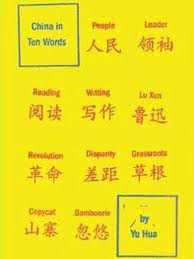When I was growing up (in India), the word "anti-social" was applied to men, especially young jobless men, who were generally violent, i.e. they would go around doing the bidding of the local political mafia.
An anti-social was the rough equivalent of the goonda or the thug.
Anti-socials were, when they weren't burning effigies or breaking windows at the behest of their bosses, "bad" people in a very absolute sense of the term.
We, the "pro-social" one's, avoided them.
In this era of technology, the meanings of pro-social and anti-social have perhaps dwindled down to something despicably narrow. An anti-social is "un-sharing fellow," who likes to keep whatever information she gathers to herself, while a "social" woman is very sharing of the same (though not necessarily caring).
One of the framers of the changing, or shall we say, "evolving" connotation of this word, is Facebook and the master wizard of the "social" Hell Boy, Mark Zuckerberg.
At least, this is so according to Evegny Morozov, whose well-considered and eye-opening argument against the god-like status granted to technology as a solution-provider to all problems of society, grip me.
In a piece,
The Death of the Cyberflaneur, Morozov writes that Facebook assaults "solitude and individuality, anonymity and opacity, mystery and ambivalence, curiosity and risk-taking," by insisting in a one-sided way, that it's better not to pursue anything at all than to not pursue it "socially."
Mark Zuckerberg posed the following question on a Charlie Rose show, where he appeared with Sheryl Sandberg:
Do you want to go to the movies by yourself or do you want to go to the movies with your friends?
A rhetorical question, to boot, it was answered by him right away:
You want to go with your friends.
Who would dare to say, "No, sometimes, I'd rather pursue something I like, alone."
Such daring, were it to take on a paradigm-effect would harm Facebook's precious "business model."
Sharing, is an implicit prerequisite of this business model. According to Morozov:
Facebook wants to build an Internet where watching films, listening to music, reading books and even browsing is done not just openly but socially and collaboratively. Through clever partnerships with companies like Spotify and Netflix, Facebook will create powerful (but latent) incentives that would make users eagerly embrace the tyranny of the “social,” to the point where pursuing any of those activities on their own would become impossible. [...] It's this idea that the individual experience is somehow inferior to the collective that underpins Facebook’s recent embrace of “frictionless sharing,” the idea that, from now on, we have to worry only about things we don’t want to share; everything else will be shared automatically. To that end, Facebook is encouraging its partners to build applications that automatically share everything we do: articles we read, music we listen to, videos we watch. It goes without saying that frictionless sharing also makes it easier for Facebook to sell us to advertisers, and for advertisers to sell their wares back to us.
"Share or die!" translates frictionlessly into "be social or perish!" but be "social" how? By getting bombarded with messages that the experience of enjoying things alone is a qualitatively inferior experience than doing the same "socially."
Thinking about what Morozov says, I feel that the word social, as it has effloresced under the aegis of technology, has become constrictive and not such a good thing to be in its adjectival mode.
I'd rather be an "anti-social" than be a "social" in this context.













